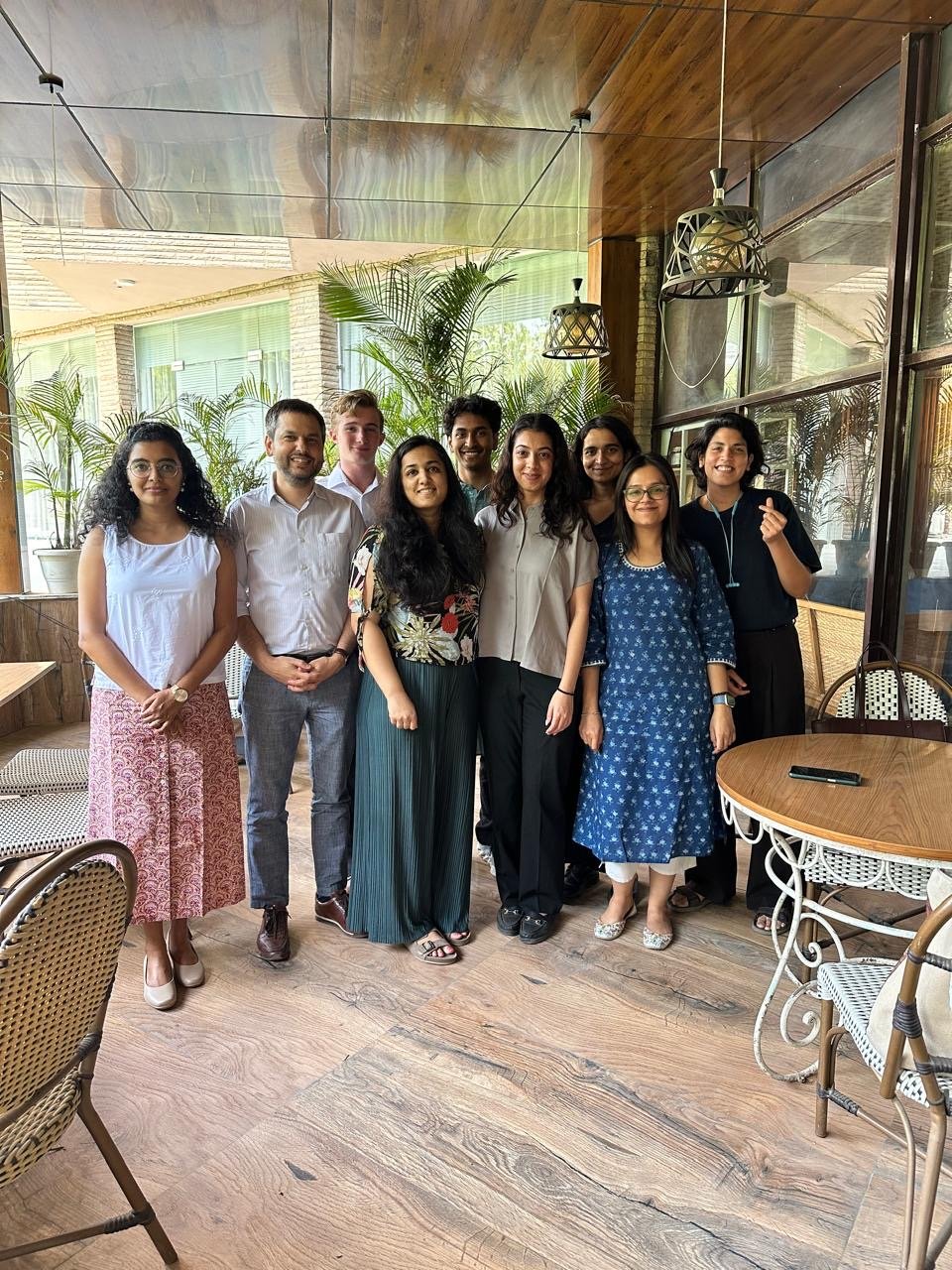Lucas Daley ‘26
Summer 2024
Foreign Policy Analysis Intern at the Centre for Social and Economic Progress
Lucas traveled to New Delhi, India, where they interned on the foreign policy and security team at the Centre for Social and Economic Progress (CSEP), an independent think tank. Lucas specifically focused on Russia’s relations with South Asia and how it relates to India’s “Neighbourhood First Policy,” publishing an article on the topic with Dr. Constantino Xavier. Lucas also assisted other fellows in their ongoing research, helped plan CSEP events, and participated in major Track 1.5 dialogues. Through immersing themselves in Chanakyapuri, Delhi’s hub of international affairs, they deepened their understanding of Indian foreign policy and advanced their skills as a researcher.
Centre for Social and Economic Progress
My time at the Centre for Social and Economic Progress (CSEP) as a foreign policy analysis intern was an incredibly informative and enjoyable experience. I learned more than I could have possibly imagined, met a wide variety of key figures across government, academia, and the private sector, and participated in major Track 1.5 dialogues. The experience served as a bridge between my academic interests and professional goals, enabling me to take the next steps towards my career aspirations.
For starters, spending 9 weeks in India was an amazing experience in itself. It was a homecoming of sorts, and it was wonderful to see my old neighborhood and connect with family friends. It also gave me the opportunity to explore Delhi, this time with an adult’s eyes. I made a ton of new friends, both through work and nightlife, whom I look forward to seeing again when I am next in town. I also was able to travel across India, visiting Hyderabad, Chandigarh and Ladakh at different points. Each was a unique experience in its own way, and through each I learned a lot about the history and culture of the subcontinent. A highlight of these experiences was wandering the Old City in Hyderabad with my uncle. He is an expert on the history of Hyderabad and has studied the city for decades. Ladakh was also an incredible experience that I shared with a fellow Obie. We visited a variety of palaces, monasteries and stupas, through them learning about the region’s unique blend of cultural influences. A highlight was visiting a mosque in Leh which blended traditional Islamic architecture with Tibetan art. One weekend, I visited ANANDA, an assisted living facility for adults with developmental disabilities run by Action for Autism in rural Haryana, where I had previously planned to intern. I was very impressed by the level of care and integration with the local community, including a full-fledged permaculture system in which much of the produce consumed by residents is grown by their own hands.
My internship itself passed by in a blur; I did not realize how much I had accomplished until sitting on the plane back to the US. My main overarching project was analyzing Russia’s relations with India’s smaller neighbors (Nepal, Bhutan, Bangladesh, Myanmar, Sri Lanka, and Maldives), under the direction of Dr. Constantino Xavier, a Senior Fellow at CSEP, and Non-Resident Fellow at the Brookings Institution. Once the topic was identified, the first steps were to compile bilateral relation factsheets through a comprehensive literature review of secondary sources, followed by analysis of primary sources such as official documents, joint statements, and speeches. We then analyzed the information and pieced a together a coherent narrative. Soon after, we published a 2500-word article using some of the findings titled “Russia’s Rising Role in India’s Neighborhood First Policy” for CSEP. We also wrote a shorter 750-word op-ed which was published in the Hindustan Times and worked with the communications team to create a social media campaign highlighting our research.
Though Russian influence in South Asia was the main focus of my internship, I also worked on a couple other projects. In June I assisted Dr. Veda Vaidyanathan in pitching new research, including compiling a comprehensive list of potential funding sources from across the world, including governments, corporations, and charitable foundations. I also helped draft a 10-page concept note explaining the objectives. Later, I helped Dr. Pooja Ramamurthi with her ongoing research on triangular cooperation, including organizing an expert research consultation. Another project I worked on was analyzing China-South Asia relations for an ongoing project by Dr. Jabin Jacob and Dr. Constantino Xavier. This consisted of analyzing ambassador’s speeches for certain themes and editing chapter drafts by other co-authors.
Also, as a part of my internship, I had the opportunity to attend events and conferences on behalf of CSEP. My two favorites were the Carnegie India Security Studies Dialogue and the US-India Strategic Dialogue, co-hosted by the Naval Postgraduate School and the Observer Research Foundation. Each was a track 1.5 format, meaning that it was a mix of current government officials alongside those from academia and the private sector. In summary, my internship at CSEP was incredibly impactful. I advanced my skills as a researcher, built a network throughout the foreign policy world, and made a variety of new friends.





